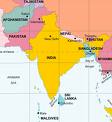The Great EU-India Corporate Heist: Uncovering the Free Trade Agenda

The current far-reaching free trade talks between the EU and India are being carried out behind closed doors. People and groups are therefore rightly concerned that proper accountability and effective public scrutiny are being sidelined in favour of a business-led agenda (1) Demands for transparency were however dealt a blow by a recent ruling.
It was discovered a while back that the European Commission (EC) withheld information about the EU-India talks from the public, even though it had already shared the information with corporate lobby groups. These documents include meeting reports, emails and a letter, all of which the EC had sent to large corporate lobby groups. Lobby watchdog Corporate Europe Observatory (CEO) had argued that information could not suddenly become confidential, which it did, when a public interest group asked for it (2).
Although the EU’s General Court in Luxembourg recently concluded that the EC did not violate EU rules by doing this (3), CEO has now appealed to the European Court of Justice on the ruling.
In a press release, CEO trade campaigner Pia Eberhardt says:
“The real issue at stake is whether the European Commission can continue negotiating backroom trade deals, together with, and for, a tiny elite of corporate lobby groups. At a time when more and more people fear that trade agreements threaten their basic rights to safe food, affordable medicines, a healthy environment and decent work, we cannot sit by and fail to challenge a ruling that risks legitimising the privileged access that the Commission grants big business over its policies.”
In its appeal, CEO argues that the EU’s General Court made errors in law, including in assessing the role of the Commission’s internal rules on access to documents (4).
The appeal comes as the EU and India are reportedly trying to ink the proposed trade agreement before elections in both regions in 2014. Trade unions, farmers, patients’ organisations and other public interest groups have repeatedly sounded the alarm at the potentially devastating impacts of the deal, particularly on access to medicines, investment and procurement decisions and the livelihoods of Indian farmers and street traders. In effect, the deal could have detrimental implications for hundreds of millions of people in India by leading to the restructuring of much of Indian society for the benefit of foreign corporate interests (5).
This week, the EU and the US are also engaged in their first round of negotiations in Washington for a major trade deal between the two blocks, which bears a the same hallmark of secrecy and a similar template for corporate plunder (6).
Underlining the relevance of the lawsuit for the EU-US trade negotiations, Pia Eberhardt stated:
“For too long, the Commission has negotiated trade agreements in secret and catered for the needs of transnational companies. Corporate Europe Observatory is challenging this complicity, trying to redress the balance in favour of transparency and a trade policy in the interest of the many rather than the few.”
CEO’s appeal will now be reviewed by the European Court of Justice. The European Commission and Germany, which intervened in the case, will then respond in writing. Once the written procedure is declared closed, the European Court of Justice will either set a date for an oral hearing or forego a hearing and issue a ruling.
The EU-India (and EU-US) free trade talks raise two key questions.
Is it right that the EU is negotiating free trade treaties in secret, while the public is kept n the dark?
Is it right that big corporations are being given privileged access to negotiations?
Little wonder that the EC does not want us to know about the negotiations.
Corporate Europe Observatory has launched a donation call to cover the legal costs of the appeal at:
http://corporateeurope.org/civicrm/contribute/transact?reset=1&id=4
Notes
2) In the General Court of the European Union. Application for Annulment of Stichting Corporate Europe Observatory against the European Commission, 15 February 2011. A background article on the case can be downloaded at:
A report about the hearing, which took place in January 2013 can be found at:http://corporateeurope.org/blog/commission-defends-privileged-access-big-business-court
3) Judgement of the General Court in case T-93/11, 7 June 2013,
4) Corporate Europe Observatory argues that the General Court made three errors in law: a) in holding that the Commission’s internal rules on handling access-to-documents requests did not produce any external effects – because the rules were transmitted to Corporate Europe Observatory by the Commission and because the rules do have an automatic effect on third parties, as they determine how to deal with requests from third parties; b) in disregarding the presumption that the documents from the Commission were intended to be seen by a large number of people, which is why it was not necessary for Corporate Europe Observatory to demonstrate that the documents had actually be seen by persons other than the initial recipient; c) in holding that there was no implicit waiver of confidentiality when the Commission did not mark documents as confidential – because it would be unworkable for the Commission to protect confidentiality without prior care, once documents had already been sent out without a confidentiality marker.

